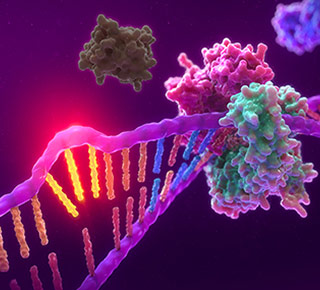MSI Analysis for Research
Promega MSI Analysis Systems are fluorescent multiplex PCR-based assays that can be used to identify instability in research samples. MSI analysis by PCR typically involves comparing allelic profiles of microsatellite markers generated by amplification from matching pairs of test samples. The presence of alleles in the abnormal sample that are not found in the corresponding normal sample is indicative of MSI. The MSI Analysis System, Version 1.2, has been used in clinical and molecular diagnostics research since 2004 and is a leader in MSI clinical research. The LMR MSI Analysis System shares four markers with the MSI Analysis System, Version 1.2, but incorporates an expanded panel of markers that includes long mononucleotide repeat (LMR) markers which offer larger-sized shifts and could help reveal instability in challenging samples.
Filter By
Showing 2 of 2 Products
An Introduction to MSI Analysis Research
Mutation in, or methylation silencing of, certain DNA mismatch repair (MMR) genes often leads to an accumulation of DNA transcription errors. These genetic alterations can disrupt normal cellular function and can lead to unchecked cell growth and cancer. They often produce unique neoantigens as well, and these potentially immunogenic proteins are often targets for researching new treatment opportunities through immune effector cell recruitment. Microsatellites are particularly sensitive to transcription errors, and thus high microsatellite instability, or MSI-H, is often used as a marker for the presence of mutations in, or methylation silencing of, certain major DNA MMR genes.



